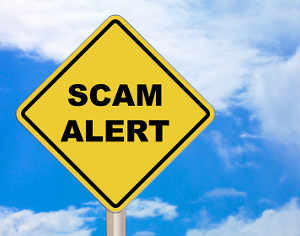How To Spot Motoring Scams

At a time when money is already tight for most families, there has been an unprecedented rise in motoring scams. A recent estimate suggests that this cost British citizens close to 2.5 billion pounds in 2021, rising from under £1 billion the previous year.
Consumers are warned to look out for a number of scams and fraudulent activities carried out in person, online and through direct communication with the public.
One example is a recent mobile phone scam in which the criminals pretended to represent the Driver and Vehicle Licensing Agency (DVLA) and made demands for payments and, in some cases, asked for vehicle information.
Known as “spoofing”, this usually takes the form of demanding vehicle tax payments and threatening hefty fines for non-compliance. Anyone who receives such a message should either delete it or confirm directly with the DVLA if they’re concerned it may be a fake message.
The recent backlog in processing driving test applications has led to fraudsters selling fake licenses or driving test appointments online. If you do intend to take advantage of a driving test offer, please ensure it has come from a reputable and official source otherwise you will not only be out of pocket but potentially driving using a fake document.
Related scams include asking for pictures or details of your vehicle logbook or other information relating to new and used cars. This is a motor trade industry no-no, as sharing photos of such personal or specific information can easily be used by scammers to perpetrate various forms of identity theft.
If you inadvertently give away such details, you can report this to the authorities. The police are happy to receive messages forwarded to the National Cyber Security Centre by texting 7726. Not only can this help stop such fraud, but it may also help in getting back any money you may have handed over.
The buying and selling of vehicles have become a huge online activity. Facebook and other social media sites are a haven for scammers, with marketplace sites often leading to cons where people hand over large sums for what they believe to be a great deal, only for the vehicle never to be delivered.
It’s also common for cars that have been written off or have hidden accident damage to be sold, at which point the buyer has very little rights.

Another common fraud is selling fake insurance through cold calling home or mobile phones. One scam involves masquerading as private or motor trade insurance brokers and pretending to offer market-beating insurance policy deals that might be available just that day or for a limited time.
It is easy to feel pressured into making a purchase, especially for vulnerable members of the population. With premiums already costly, should you fall for such a scam not only will you have paid out for worthless insurance, but you may also be fined up to £300 for not actually possessing valid insurance!
There are also scams when attempting to sell your vehicle online. New fraudulent activities include multiple people attending a purchase, some of whom may distract the seller while another damages or tinkers with the vehicle to cause it to break down or to make the seller offload the car at a much lower price.
False mobile car valeters are also on the prowl, conning people into opening their cars and potentially leading to vehicle or other theft.
With so many scams circulating, it is advisable to be very careful when undertaking any activity, especially with unknown people or when contacted form a number you don’t recognise. Please take every precaution to ensure that any demands for payments are vetted before you hand over a penny and contact the authorities if you suspect criminal activity.






